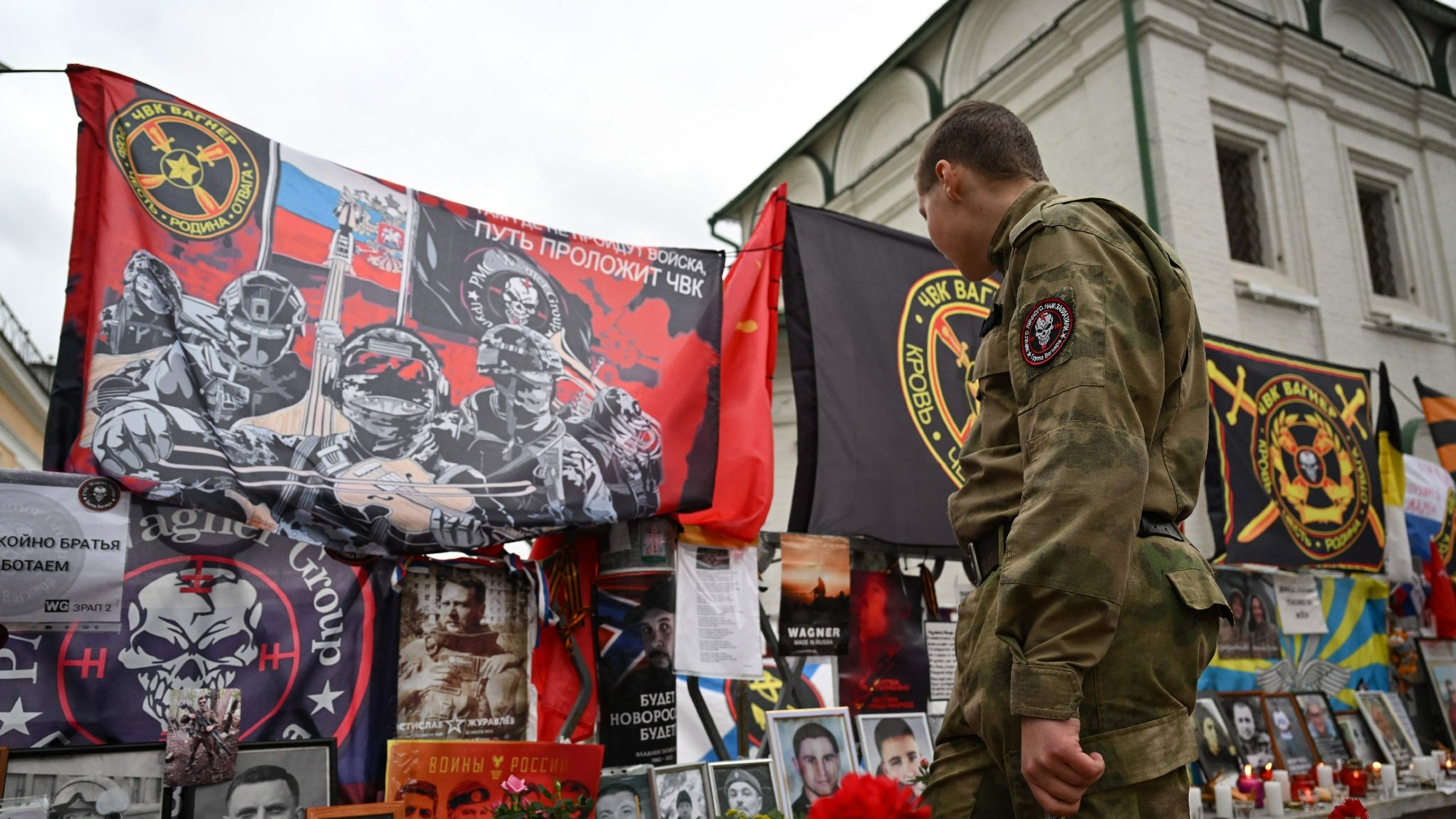The murky role of military contractors in war
A civil case against US company has revived debate over the increasing use of private security firms in military operations

A free daily email with the biggest news stories of the day – and the best features from TheWeek.com
You are now subscribed
Your newsletter sign-up was successful
A US military contractor is in court this week over allegations of prisoner torture during the Iraq War.
Three former inmates at the "infamous" Abu Ghraib prison near Baghdad have brought a civil case against CACI, accusing the Virginia-based firm of conspiracy to torture prisoners, said The Independent. CACI has denied wrongdoing and said the claimants have not been able to "sufficiently prove" that its workers directed abuse at the prison.
But, according to evidence given by retired US army general Antonio Taguba, who led a 2004 investigation into the abuses, a civilian contractor working for CACI instructed guards to "soften up" inmates for interrogation.
The Week
Escape your echo chamber. Get the facts behind the news, plus analysis from multiple perspectives.

Sign up for The Week's Free Newsletters
From our morning news briefing to a weekly Good News Newsletter, get the best of The Week delivered directly to your inbox.
From our morning news briefing to a weekly Good News Newsletter, get the best of The Week delivered directly to your inbox.
The case could have "ramifications beyond remedies for victims", said Time, which pointed to the US military's "dependence on contractors". The global private military contractors (PMCs) sector has continued to grow as governments seek cost-effective, expert and discreet resources to supplement their own militaries.
What exactly do military contractors do?
Escalating global conflicts have driven military spending across the world to "levels not seen since the Cold War", said the Financial Times. And that has been a boon for weapons, ammunition and defence technology manufacturers.
The role of PMCs is "multifaceted", said Federica Saini Fasanotti at GIS Reports. They might act as "supplements to traditional armies" or be "employed by multinational corporations".
Most contractors are former members of the armed forces who can use that training to "provide external and internal security, engage in warfare, secure local leadership and even become an extension of that leadership's armed forces", as well as train local soldiers.
A free daily email with the biggest news stories of the day – and the best features from TheWeek.com
Although individual contractors are usually hired for the duration of a specific mission, many PMCs have had long-term engagements with governments.
Who is using them?
The most well-known PMC is the Wagner Group, a long-time contractor for the Russian government that has conducted controversial operations on behalf of Moscow in Ukraine, Syria, and several African countries.
But the most prolific employers of privatised armed forces are the UK, China, South Africa and, in particular, the US. And reliance on contractors such as CACI has grown hugely since the Iraq War, to the point where the US military "can't move, communicate, fight, or sustain itself without contractor support", Steven Schooner, a professor at George Washington University Law School, told Time.
PMCs are also being used to alleviate "growing demand on the UK's official intelligence resource", said the i news site. Prevail Partners, a risk management contractor "commonly used by the UK government", was reported this week to have been tasked with tackling the small boats crisis by using open-source software and artificial intelligence to vet arrivals and combat people smugglers.
Why are they so controversial?
The biggest issue around PMCs remains accountability. There is little regulation surrounding their actions, and while the "international community has sought to set standards", said The Guardian, legal ramifications for contractors have been "rare".
Some PMCs are known to have used "illegal warfare activities" to complete missions, acting as a "scapegoat" for governments wishing to bypass domestic and international laws to achieve their aims, said Martha Garcia at Modern Diplomacy.
There is also a blurred line between contractors and mercenaries. The biggest difference "is who they agree to work for", but even that has "no clear line", given the lack of regulation, said Garcia. The "rapid expansion and normalisation" of PMCs has created a "dangerous gap" in the international community's understanding of the potential dangers posed by this "evolving threat".
Richard Windsor is a freelance writer for The Week Digital. He began his journalism career writing about politics and sport while studying at the University of Southampton. He then worked across various football publications before specialising in cycling for almost nine years, covering major races including the Tour de France and interviewing some of the sport’s top riders. He led Cycling Weekly’s digital platforms as editor for seven of those years, helping to transform the publication into the UK’s largest cycling website. He now works as a freelance writer, editor and consultant.